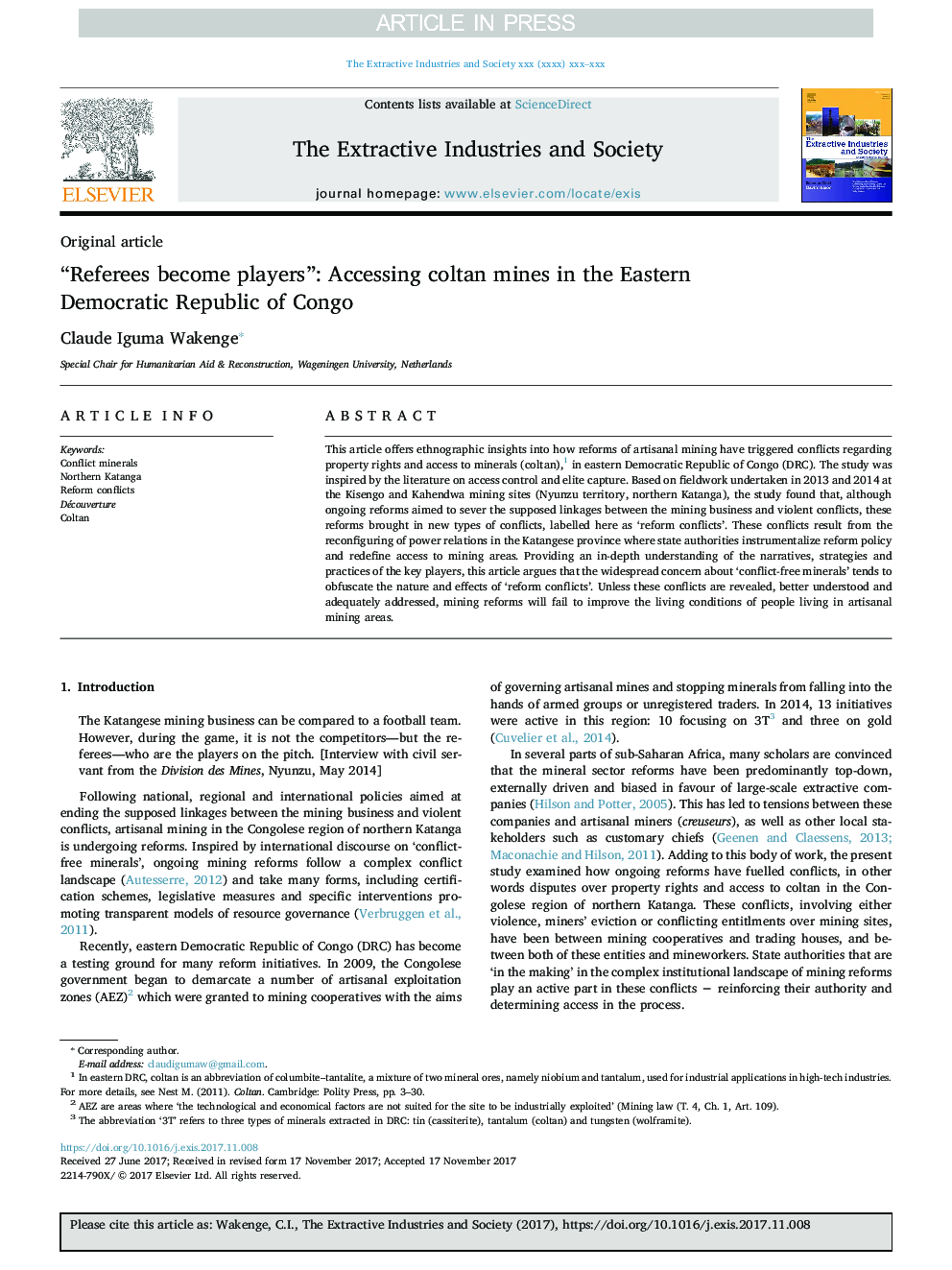| Article ID | Journal | Published Year | Pages | File Type |
|---|---|---|---|---|
| 7454227 | The Extractive Industries and Society | 2018 | 7 Pages |
Abstract
This article offers ethnographic insights into how reforms of artisanal mining have triggered conflicts regarding property rights and access to minerals (coltan),1 in eastern Democratic Republic of Congo (DRC). The study was inspired by the literature on access control and elite capture. Based on fieldwork undertaken in 2013 and 2014 at the Kisengo and Kahendwa mining sites (Nyunzu territory, northern Katanga), the study found that, although ongoing reforms aimed to sever the supposed linkages between the mining business and violent conflicts, these reforms brought in new types of conflicts, labelled here as 'reform conflicts'. These conflicts result from the reconfiguring of power relations in the Katangese province where state authorities instrumentalize reform policy and redefine access to mining areas. Providing an in-depth understanding of the narratives, strategies and practices of the key players, this article argues that the widespread concern about 'conflict-free minerals' tends to obfuscate the nature and effects of 'reform conflicts'. Unless these conflicts are revealed, better understood and adequately addressed, mining reforms will fail to improve the living conditions of people living in artisanal mining areas.
Keywords
Related Topics
Life Sciences
Environmental Science
Management, Monitoring, Policy and Law
Authors
Claude Iguma Wakenge,
